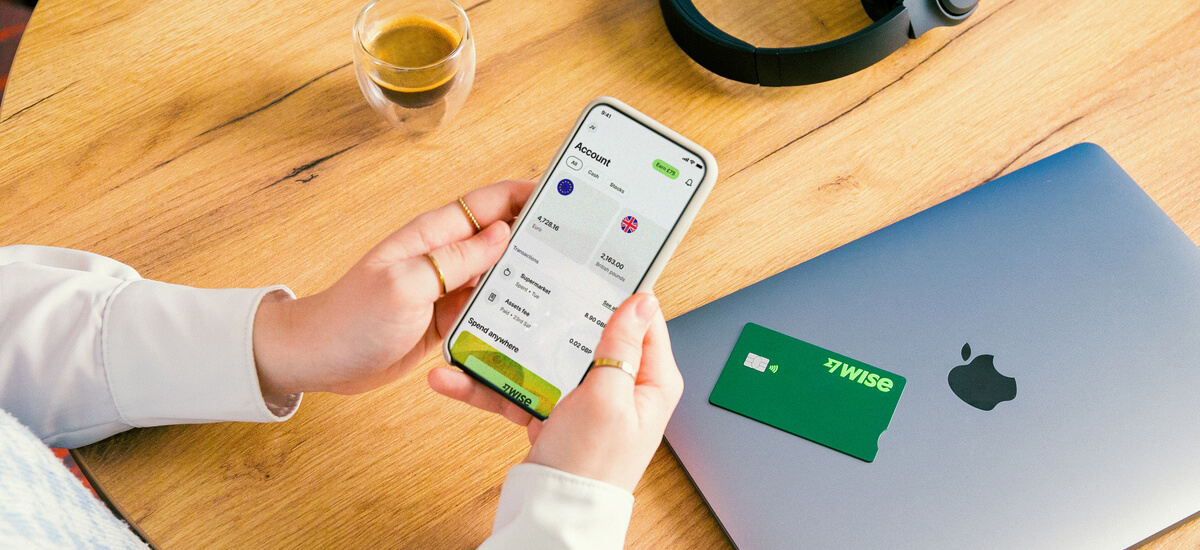Austria corporate tax - guide for international expansion
Learn about the corporate tax system in Austria, its current rates, how to pay your dues and stay compliant, and best practices.

If you have a UK business, selling goods or services to customers based in the EU can be a great way to expand and boost your profits. However, it’s important to figure out the process for invoicing overseas customers before you get started. Some things work differently compared with selling to UK based customers - such as the details needed on an invoice and the rules for charging VAT to EU customers.
This guide covers all you need to know. We’ll also touch on Wise Business and how it helps UK companies to get paid by international customers, with powerful multi-currency accounts you can use to receive and hold a broad selection of global currencies.
💡 Learn more about Wise Business
When you invoice an overseas customer from the UK you’ll need to understand the local laws and requirements for invoicing wherever the customer is based. If you’re selling to the EU from the UK, it’s helpful to know that there are EU rules about what information is required on an invoice. In addition, some countries add in extra requirements which you’ll also need to take into consideration.
It’s compulsory to issue an invoice for B2B sales in the EU, and it’s also mandatory for some B2C sales. Invoices can be issued in paper form or electronically1.
The exact information needed when invoicing EU companies from UK may vary slightly depending on the situation, but in general you’ll need1:
- Invoice date
- Invoice number
- Customer’s VAT number if relevant
- Supplier’s full name and address
- Customer’s full name and address
- Description of goods supplied
- Unit price of goods or services
- Date of transaction or payment (if different from invoice date)
- VAT rate and amount if relevant
- Breakdown of VAT amount payable by VAT rate or exemption
| Get a handy invoice template you can customise to your business here. |
|---|
We’ve covered the information needed when invoicing an EU company above - bear in mind that some countries have additional rules and requirements, so you’ll need to double check the full detail needed based on the specific EU country the company is based in.
Aside from the basic legal requirements, there are a few other important things to talk to the company you’re invoicing about. For example it’s important to agree on the currency you’ll use in the invoice, as well as delivery and payment terms. While many EU countries use the euro and so companies may choose to be billed in EUR, not all EU and EEA countries are in the Eurozone. Double check with your customer on their preferred billing currency - we’ve set out the national currencies of all EU and EEA countries below for reference.
| There’s more about the details you should include on an invoice in this handy guide |
|---|
| EU Country2 | National currency |
|---|---|
| Austria | Euro |
| Belgium | Euro |
| Bulgaria | Bulgarian lev |
| Croatia | Euro |
| Republic of Cyprus | Euro |
| Czech Republic | Czech koruna |
| Denmark | Danish krone |
| Estonia | Euro |
| Finland | Euro |
| France | Euro |
| Germany | Euro |
| Greece | Euro |
| Hungary | Hungarian forint |
| Ireland | Euro |
| Italy | Euro |
| Latvia | Euro |
| Lithuania | Euro |
| Luxembourg | Euro |
| Malta | Euro |
| Netherlands | Euro |
| Poland | Polish zloty |
| Portugal | Euro |
| Romania | Romanian leu |
| Slovakia | Euro |
| Slovenia | Euro |
| Spain | Euro |
| Sweden | Swedish krona |
In addition to these EU countries, there are also a few other countries which are part of the EEA (European Economic Area). These countries are still part of the EU’s single market:
| EEA Country | National currency |
|---|---|
| Iceland | Icelandic krona |
| Liechtenstein | Swiss franc |
| Norway | Norwegian krone |
Finally, there’s one further exception - Switzerland, which is neither in the EU nor the EEA, but is part of the single market and uses the Swiss Franc as currency.
VAT - value added tax - is charged on many goods and services bought and sold in the UK. If your business has a turnover of more than 85,000 GBP a year you’ll need to be VAT registered, and you can also choose to register with a lower turnover if you’d like to3.
If you’re exporting goods from the UK to the EU, you may not need to charge VAT on them. This is known as zero rating - when an item would normally be covered by VAT, but due to the nature of the sale, the VAT is set to zero. The rules around VAT on exports are important to understand if you’re planning on sending goods overseas - in general if the items in question aren’t being consumed in the UK they’re zero rated4. However, as with all tax matters, it’s best to take professional advice if you’re unsure.
Countries in the EU have a unified approach to invoicing, subject to a few different rules set at a national level. This means that many of the rules that apply for invoicing in the EU are the same across all countries, including the basic information needed on an invoice and the way invoices can be received and stored. Within the EU invoices can be issued in hard copy or electronically, and generally must include the same information about the supplier, customer and transaction.
Before you issue your EU invoice you’ll need to discuss with the customer how they’d like to pay. You can agree on the currency to be paid in, as well as the payment terms, and include all of this detail on the invoice you create. If your customer would prefer to pay in their home currency you may find it’s convenient to get an international business account from a service like Wise Business, which lets you get paid in euros and a selection of other currencies like a local. More on that later.
Receive Euros easily with Wise Business
Yes. UK businesses can invoice in any currency. However, if UK VAT is due on the transaction your invoices must also show the following in British pounds5:
- the total net value of goods sold at each VAT rate
- the amount of VAT, if any, at each rate
In most cases you won’t need to charge VAT on items you’re exporting from the UK. VAT applies only on goods which have been consumed in the UK, which means export items are likely to be zero rated. However, as with all tax matters it’s a complex area, so do get professional advice if you’re not sure whether or not to charge VAT to your EU customers.
Get Wise Business to help your UK business to get paid on time in euros and other major currencies.

Open your Wise Business account for a one time fee, to hold and exchange 40+ currencies, and get paid using local bank details for a selection of currencies including pounds, euros and US dollars. That makes it easy for your customers to pay you in their home currency - plus, you can also use the Wise request payment feature to make getting paid even easier.
Once you’ve received a payment in a foreign currency you can hold it in your Wise account to pay overseas suppliers or contractors in future - or exchange back to pounds using the mid-market rate and low, transparent fees. Wise Business accounts come with lots of handy extras like debit and expense cards, easy ways to send money to 160+ countries, batch payment options and ways to set and manage user permissions so your team can access all the features they need to do their jobs.
Use this guide to learn more about invoicing overseas customers - and before you get started, check out Wise Business to see if you could save on currency conversion costs when selling abroad.
Get started with Wise Business 🚀
Sources used in this article:
Sources last checked February 27, 2024
Disclaimer: The UK Wise Business pricing structure is changing with effect from 26/11/2025 date. Receiving money, direct debits and getting paid features are not available with the Essential Plan which you can open for free. Pay a one-time set up fee of £50 to unlock Advanced features including account details to receive payments in 22+ currencies or 8+ currencies for non-swift payments. You’ll also get access to our invoice generating tool, payment links, QuickPay QR codes and the ability to set up direct debits all within one account. Please check our website for the latest pricing information.
*Please see terms of use and product availability for your region or visit Wise fees and pricing for the most up to date pricing and fee information.
This publication is provided for general information purposes and does not constitute legal, tax or other professional advice from Wise Payments Limited or its subsidiaries and its affiliates, and it is not intended as a substitute for obtaining advice from a financial advisor or any other professional.
We make no representations, warranties or guarantees, whether expressed or implied, that the content in the publication is accurate, complete or up to date.

Learn about the corporate tax system in Austria, its current rates, how to pay your dues and stay compliant, and best practices.

Learn about the corporate tax system in Botswana, its current rates, how to pay your dues and stay compliant, and best practices.

Learn about the corporate tax system in Chile, its current rates, how to pay your dues and stay compliant, and best practices.

Learn about the corporate tax system in Montenegro, its current rates, how to pay your dues and stay compliant, and best practices.

Learn about the corporate tax system in Monaco, its current rates, how to pay your dues and stay compliant, and best practices

Learn about the corporate tax system in Costa Rica, its current rates, how to pay your dues and stay compliant, and best practices.